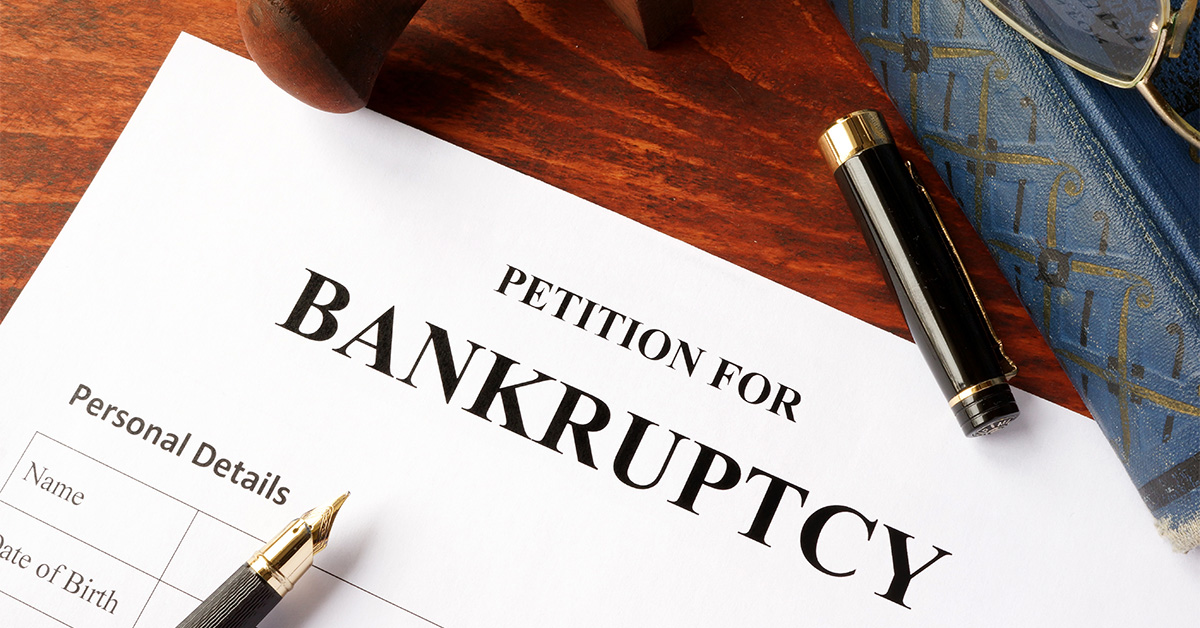Akbar Thomas Resources and Education

Questions You Need to Ask Yourself Before Declaring Bankruptcy in Florida
U.S. bankruptcies are down significantly since their all-time 2005 high when more than two million Americans filed for financial reorganization. While less than 500,000 Americans filed for bankruptcy in 2022, monthly 2023 filings demonstrate a marked year-over-year increase over 2022.
As a practiced Tallahassee-area bankruptcy attorney, Mutaqee Akbar of Akbar Thomas understands how the mere thought of bankruptcy represents a scary proposition to most people. And while it can be an emotionally challenging and sometimes-embarrassing course of action to take, bankruptcy protection can help people successfully resolve their overwhelming debt load so they can make a fresh start on their financial lives.
When initially consulting with his bankruptcy clients, Mutaqee asks them several questions to determine whether bankruptcy is truly the right option for their situation. If you’re feeling overwhelmed by debt and are considering bankruptcy, you should ask yourself these questions, too.
Are Debt Collectors Ruining My Life?
If you are so in debt that collections agencies or other debt collectors are becoming a weekly part of your life, you definitely have a financial challenge that needs to be addressed. Unfortunately, the debt load and ever-growing interest tend to thwart most people’s efforts by this point. While bankruptcy forces creditors to back off, you need to assess other factors to determine the feasibility of your bankruptcy decision.
Have I Exhausted Other Available Options?
Before declaring bankruptcy, financial experts recommend that debtors investigate all other potential options for relieving their debts and improving their financial situation. Such options include:
- Debt settlement—negotiated agreement with your creditors to pay a reduced amount.
- Asset sales—If you have items of value, it might be worth selling them to pay off your debts, even if a cherished family heirloom or your dream car.
- Cut unnecessary expenses—You might have to make cuts to your lifestyle choices, but any reductions you make to discretionary spending can help you reduce debt.
- Seek support from loved ones—While it might be embarrassing, a beloved relative might be willing to rise to the occasion to help you resolve your debt. We suggest you take other actions first to demonstrate your seriousness about pulling yourself out of the hole.
Do I Qualify for Bankruptcy?
Bankruptcy isn’t available to everyone and is reserved for those with unmanageable debt loads. You must pass a test to determine whether your family income, expenses, and liabilities make you eligible for the Chapter 7 debt liquidation form of bankruptcy. The primary qualifier for Chapter 7 is having an income below the state’s median for similar family sizes. Those who fail this qualification are usually still eligible for Chapter 13, provided their debts don’t exceed specific thresholds. Chapter 13 filers must earn enough income to make current payments to their secured creditors. An experienced bankruptcy lawyer can help you determine in advance whether you qualify for either chapter.
Anyone filing for bankruptcy in Florida also must take a credit counseling course within 180 days before the date of filing. Along with class completion, the debtor must include a statement of compliance with the requirement in their bankruptcy petition to the court.
Last, there are restrictions on filing for bankruptcy for those who have previously undergone it. Chapter 7 filers must wait six years if they have previously filed under Chapter 13 and eight years if they filed a Chapter 7 one. Chapter 13 filers must wait two years to refile after a previous Chapter 13 and four years for an earlier Chapter 7.
Will Bankruptcy Address All of My Debt?
While most people consider bankruptcy a clean start, it doesn’t eliminate all kinds of debt. Bankruptcy can resolve credit card debt, personal loans, utility debts, medical bills, and similar types of debt, but other forms of debt may not be eliminated depending on which bankruptcy chapter is used. Debt that may not be eliminated includes:
- Secured debts such as mortgages and car loans
- Alimony and child support
- Property liens
- Student loans
Will I Be Able to Live with the Long-Term Effects?
Declaring bankruptcy marks a first step towards alleviating existing financial stress, but its impact on your credit report may impact your finances for years by inhibiting your ability to get loans, an apartment, insurance, and perhaps even new employment. A Chapter 13 bankruptcy will remain on your credit report for up to seven years, while a Chapter 7 bankruptcy becomes part of your report for 10 years.
Consult with Akbar Thomas Law About Your Bankruptcy Options
Naturally, there are other considerations to assess if you are contemplating bankruptcy protection, but these questions provide a good starting point. For expert legal advice about your bankruptcy options, consult with Tallahassee’s Akbar Thomas Law bankruptcy team by contacting us today at 850-383-0000 or through the chat on the website.

